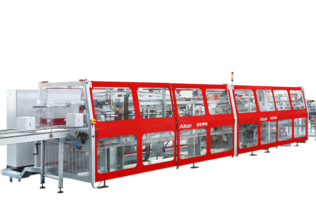Iconic Lubrificantes is a Brazilian Company founded through a partnership between the Brazilian fuel company Ipiranga and Chevron Corporation, a leader in the US oil market. Together, they are involved in the development, production, distribution and sales of lubricants, greases, fluids, coolants for automotive and companies throughout Brazil.
Iconic Lubrificantes has three factories in Rio de Janeiro and São Paulo, a network of 50 authorized distributors, more than 30 distribution centers that serve about 100 thousand dealers throughout the Country and a wide range of segments, from industries, large consumers, vehicle manufacturers, the maritime sector, power plants, and the chain of gas stations distributors Ipiranga.
The need to modernise plants and increase their functionality and productivity led Iconic Lubrificantes to look for a single, reliable partner that could guarantee the achievement of the objectives set. OCME was the right answer and, thanks to the support of the on-site subsidiary Robopac Brasil, was able to ensure an absolutely customized and optimized "turnkey" solution, providing the best service in terms of technology and assistance.
It was an important intervention that involved all the machines of the plant: such as the rotary weight filling machine LIBRA with high performance and efficiency, with motorized nozzles;
the DORADO depalletizer, flexible, compact and fast, ideal for handling bulk products. The supply also included a bulk and parcel transport system, a divider and the AltairX30 wrap-around case packer with a maximum speed of 30 cartons/minute.
OCME completed its proposals with the Force Palletizer and the Rotoplat 3000HD, an automatic turntable with motorized roller for wrapping and stabilizing loads on pallets with stretch film, for the automatic end-of-line packaging.
